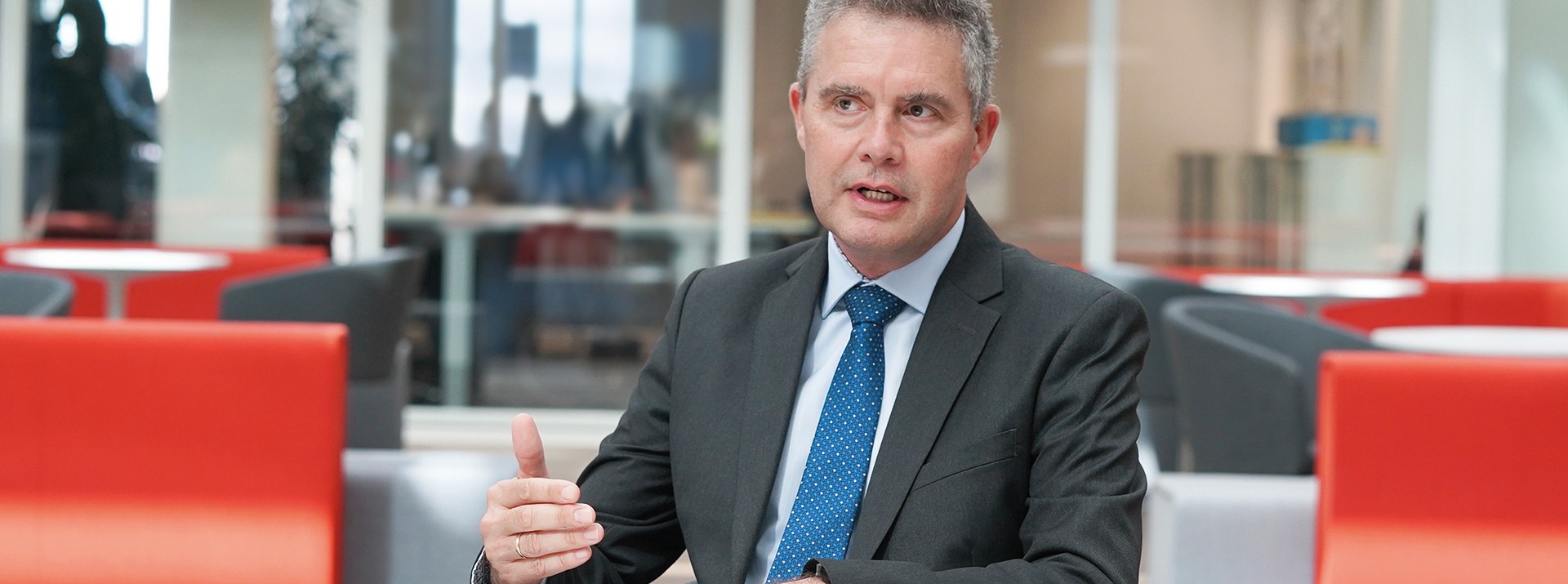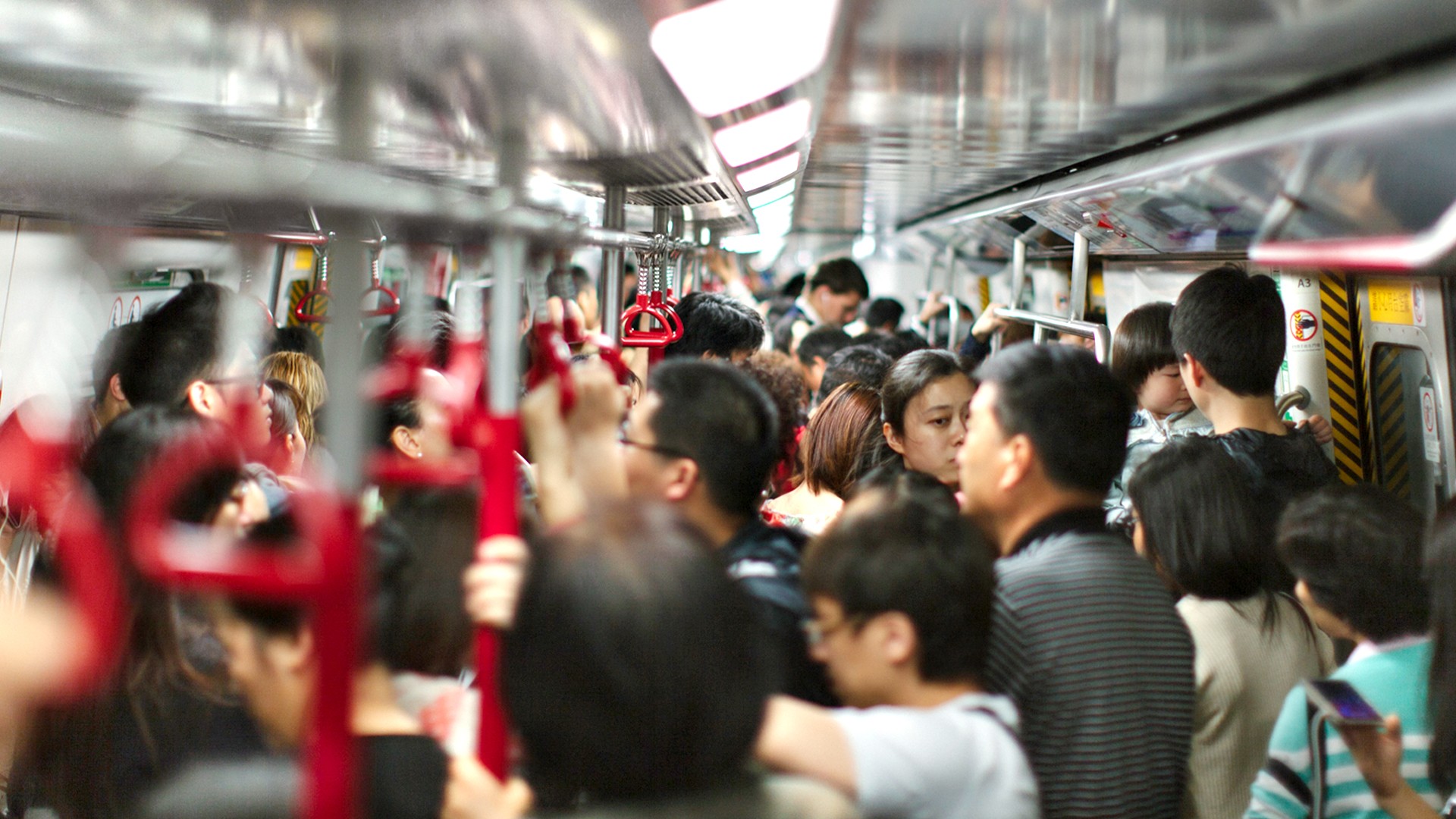
Dr. Jonathan Paddison is a member of the Board of Directors of Knorr-Bremse Asia Pacific, based in Hong Kong in China – by no means his first professional post on the continent. He says: “Asia, especially Japan, has become a kind of third home for me after the UK and Germany.”
The Asia-Pacific region is considered to be a dynamic market for new mobility concepts – and particularly open to innovative rail solutions. Cultural differences mean doing business is not always easy from a European perspective, but they represent an exciting challenge which Knorr-Bremse has been ready and willing to take up over the last few decades.
“Think global, act local” is one of Knorr-Bremse’s central maxims. What is the underlying idea?
Dr. Jonathan Paddison: I often like to use this catch-phrase, especially with our customers and partners. It neatly sums up a complex aspect of Knorr-Bremse’s corporate culture: In all our markets, we maintain strong local organizations that are familiar with the particular conditions on the ground – cultural, technological and legal. At the same time, they have access to the combined expertise of the global Knorr-Bremse Group.
In practical terms, what does the phrase mean from the perspective of a customer in the Far East?
Dr. Jonathan Paddison: With only a few exceptions, local management – for example – is in the hands of local colleagues. On the one hand, they bring with them soft skills in local operations that are very important, especially in Asia. They know best how challenges should be assessed and what the most appropriate way is to tackle them. On the other hand, they are also bridge-builders – they have developed excellent networks within Knorr-Bremse that enable them to move things forward quickly at the internal level. Where appropriate, we have augmented our local staff with experienced experts from our major locations in Europe and North America. The result is that customers all round the globe receive a tailor-made package of products, systems and services that offer maximum added value.
Is another reason for this maxim the fact that the Asia-Pacific region “ticks” differently from Europe?
Dr. Jonathan Paddison: Of course the same principle applies all round the globe – but the cultural differences between the Asian market and our core European market mean it is particularly relevant. There are also differences between the various cultures within the region – to a much greater extent than we are used to in Europe or North America.

Can you give us an example from everyday operations?
Dr. Jonathan Paddison: In Anglo-Saxon countries, there is usually a project manager in charge of each project. In many Asian cultures that would cause confusion. Over there, the task of managing a project is spread across several people, the team as a whole has a stronger profile, and more emphasis is placed on strong team communication. Furthermore, the expectations placed on us as a systems supplier are also enormous in many parts of Asia: Every request is important – and ideally needs to be dealt with immediately…
…which is not that easy in reality.
Dr. Jonathan Paddison: Precisely. But there are good reasons for this: Manufacturing a product that is adapted to local market requirements takes time. As you probably know, our portfolio contains rail systems that are extremely safety-critical. This means it is in the interests of the customer for us to come up with the most attractive concept, including in terms of the timeline. Our customers appreciate that we do all we can to find solutions that meet their wishes. That’s the name of the game! But at the same time the entire Asian region is very open to innovative solutions. And that is a huge opportunity for us.
Knorr-Bremse has six sites and numerous service centers in the region. There is also a whole range of field service teams. What is the Company’s objective with this network?
Dr. Jonathan Paddison: Well, on the one hand we are not just interested in selling excellent products and systems. We are also determined to offer reliable support throughout the decades-long operating life of trains, which means servicing and maintaining them, and so helping to enable efficient, long-lasting rail fleets. The local service centers are essential if we are to offer short delivery times, for example for spare parts, and thus maintain a high level of vehicle availability. When vehicles need to be serviced, our customers expect fast response times and sustainable solutions. To be able to offer these, we need to have experts on the ground in the form of our field service quality and engineering teams.
And local production is mainly a result of the localization requirements in the country concerned – such as the adaptation of, for instance, braking systems to the specific needs of local customers?
Dr. Jonathan Paddison: That may seem an obvious point, but there is more to it than that. If, for example, China decides to plan new metro lines, we have to be quick with our systems for the new vehicles. Then ability to deliver is of the essence. But that is only possible if there are production plants and established delivery processes at local level – and in the case of Knorr-Bremse, these often take the form of joint ventures. I think this approach is also the result of our company’s philosophy: Others come and go. We stay for the long term.